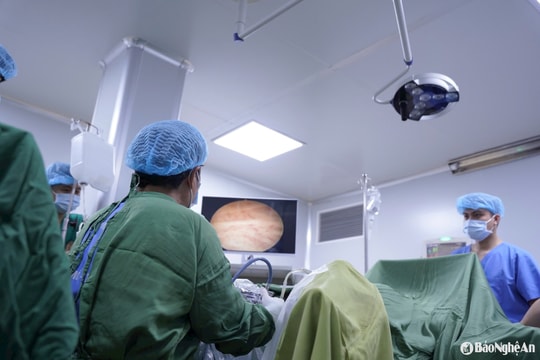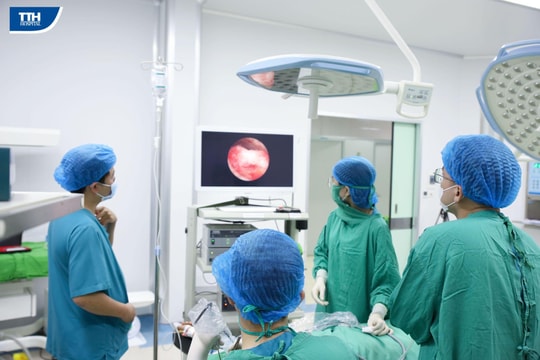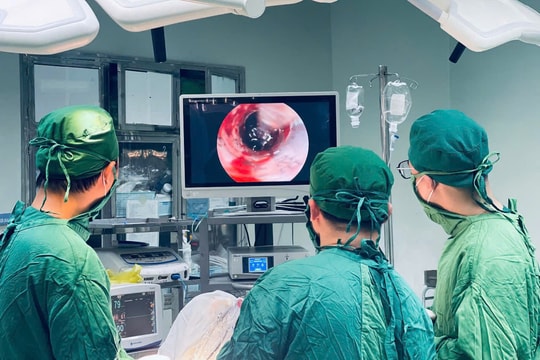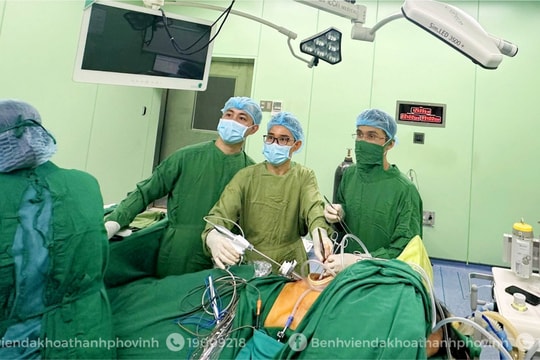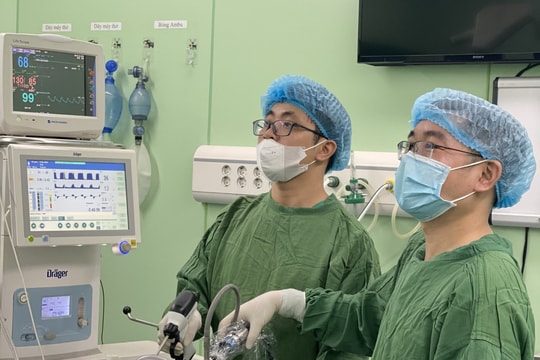Successful laparoscopic rectal tumor resection at Vinh General Hospital
(Baonghean.vn) - Rectal cancer is a common disease. If detected late and the tumor is large, it can lead to dangerous complications. Rectal cancer accounts for 45 - 50% of colorectal cancer.
Patient Tran Van Q, 62 years old (Vinh City) was admitted to the hospital with lower abdominal pain, digestive disorders, and bloody stools. After examination and colonoscopy, doctors diagnosed the patient with an upper rectal tumor.
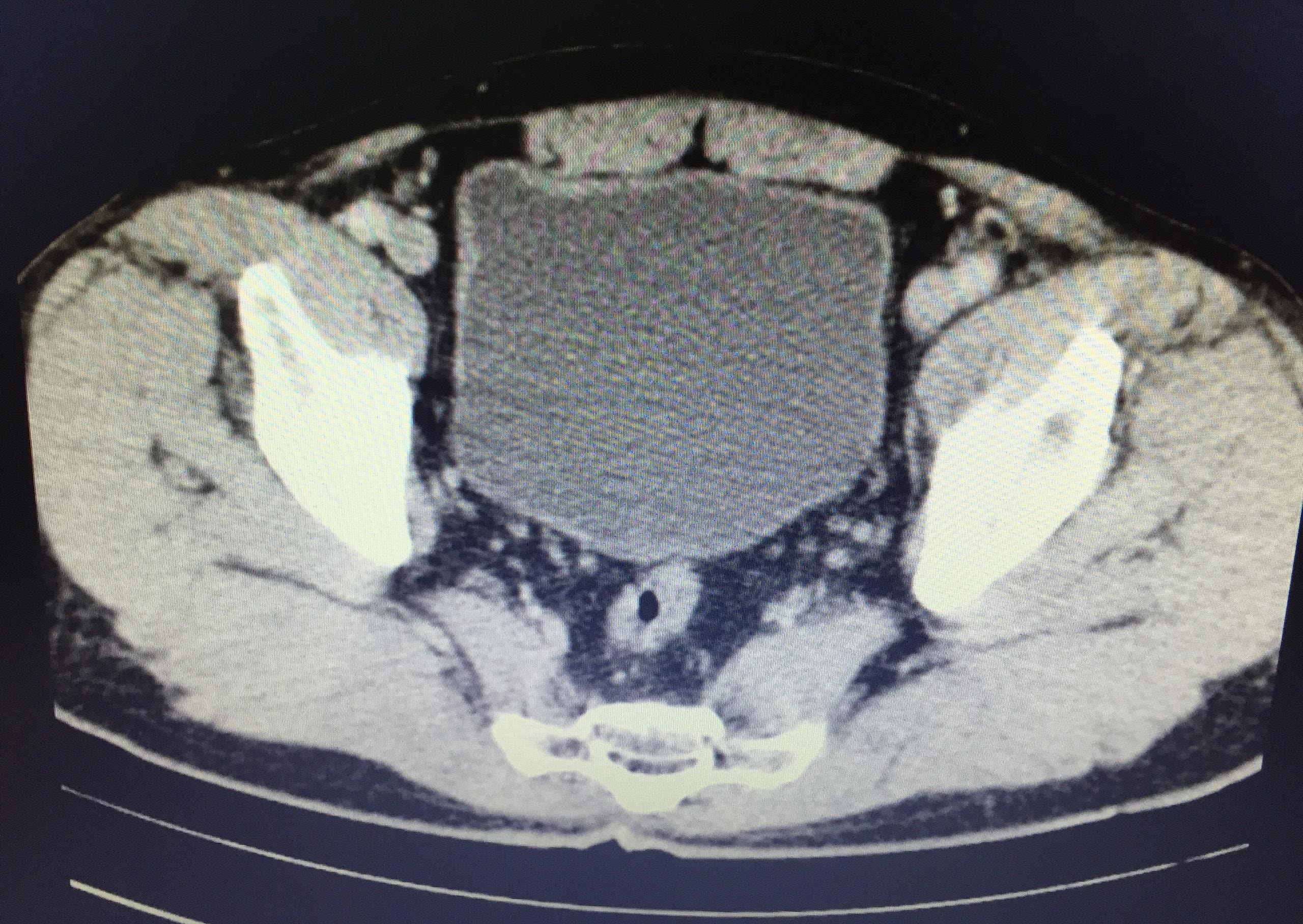 |
| CT scan image of rectal tumor in the upper third of patient Tran Van Q, 62 years old (Vinh City). Photo: My Hanh |
In this case, the doctors prescribed laparoscopic surgery. The surgery lasted 3 hours and 30 minutes. The surgical team from the Department of General Surgery, Vinh General Hospital used 5 trocars into the abdomen, dissected and cut the rectum with the tumor, then connected the left colon to the rectum using a Stapler anastomosis machine.
Dr. Phan Sy Thanh Ha, who directly performed the surgery on the patient, said: “The advantage of this endoscopic method is that it can be easily operated in narrow surgical fields, especially rectal tumor surgery. The patient has less pain after surgery, a short hospital stay, and high aesthetics... Just a few hours after surgery, the patient is completely awake and in stable health.”
Although laparoscopic rectal tumor resection technique has just been routinely implemented at Vinh General Hospital, it has been effectively applied and successfully treated many patients with this disease.
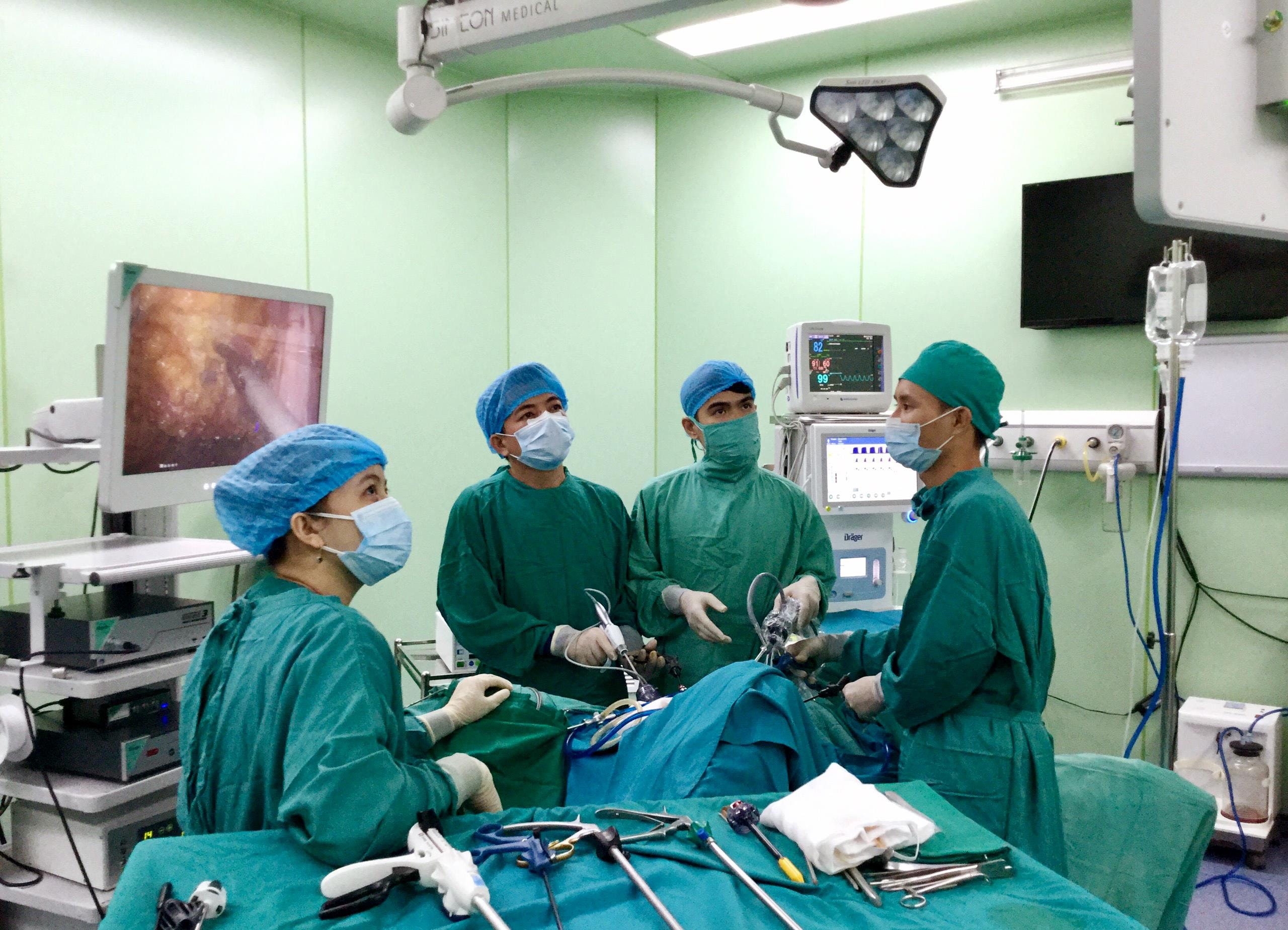 |
| A team of doctors from Vinh General Hospital performed laparoscopic surgery to remove a rectal tumor for patient Tran Van Q. Photo: My Hanh |
Dr. Phan Sy Thanh Ha added that rectal tumors are a common disease, patients often have common symptoms such as: dull abdominal pain, digestive disorders, stools mixed with blood and mucus, weight loss; normally it can be confused with some diseases of bloody stools such as hemorrhoids, bleeding proctitis...
In the late stages, patients often show signs of intestinal obstruction such as abdominal pain, nausea and vomiting, bloating, constipation, palpable tumors, fatigue and weakness. Symptoms of the disease will depend on the size of the tumor as well as the location where the tumor develops. If detected late, a large tumor can cause intestinal obstruction, metastasize to neighboring organs, and is very difficult to remove, requiring the patient to have an artificial anus...
Therefore, patients with the above symptoms should immediately go to medical facilities for examination and should have regular health check-ups and gastrointestinal endoscopy to detect and treat the disease early and effectively./.


